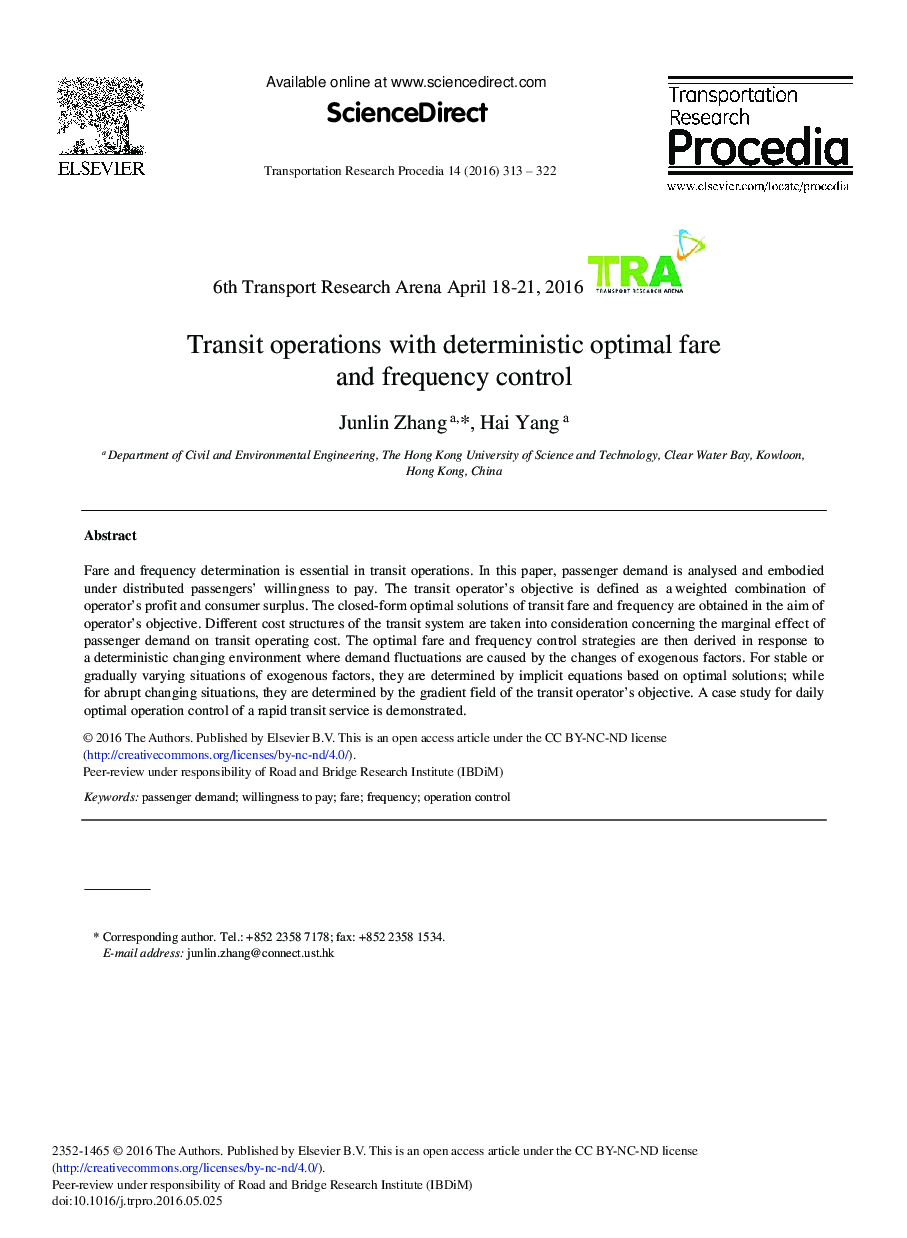| Article ID | Journal | Published Year | Pages | File Type |
|---|---|---|---|---|
| 1106216 | Transportation Research Procedia | 2016 | 10 Pages |
Fare and frequency determination is essential in transit operations. In this paper, passenger demand is analysed and embodied under distributed passengers’ willingness to pay. The transit operator's objective is defined as a weighted combination of operator's profit and consumer surplus. The closed-form optimal solutions of transit fare and frequency are obtained in the aim of operator's objective. Different cost structures of the transit system are taken into consideration concerning the marginal effect of passenger demand on transit operating cost. The optimal fare and frequency control strategies are then derived in response to a deterministic changing environment where demand fluctuations are caused by the changes of exogenous factors. For stable or gradually varying situations of exogenous factors, they are determined by implicit equations based on optimal solutions; while for abrupt changing situations, they are determined by the gradient field of the transit operator's objective. A case study for daily optimal operation control of a rapid transit service is demonstrated.
